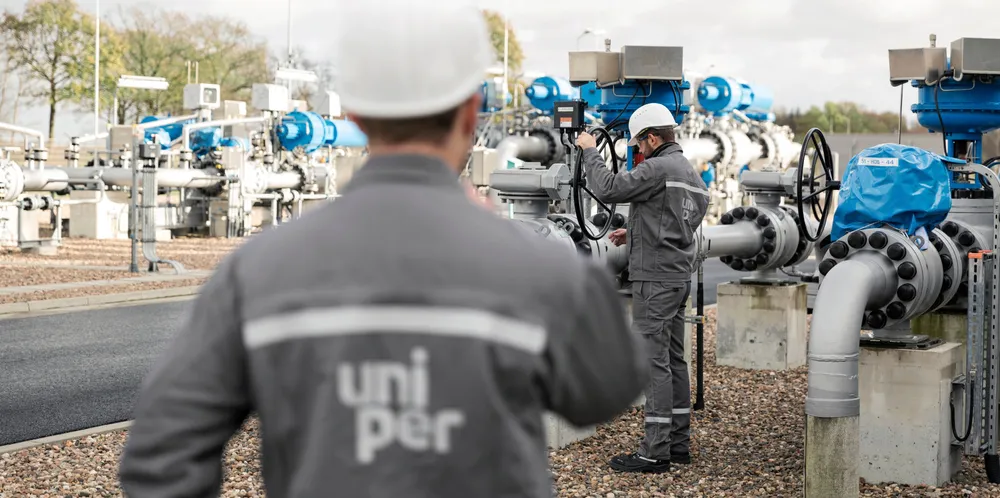'Keys in Berlin’s hands' | Governments agonise over massive rescue of stricken utility Uniper
European nations are facing up to the costs of the energy crisis, as Finland tries to avoid being drawn into a multi-billion-euro package to aid Germany's Fortum-owned group and France faces its own massive bill for EDF, writes Bernd Radowitz

Talks over a rescue of Uniper involving billions of euros have reached the highest government levels, with majority state-owned Finnish parent company Fortum saying Berlin holds the “keys to resolve this situation” as the Nordic nation tries to avoid throwing more taxpayer money at the German business.
Fortum – which owns 78% of Uniper and itself is 51%-owned by the Finnish state – said it is continuing constructive talks with the German government on how to stabilise Uniper both in terms of its financial position and business risks, safeguarding the security of Germany’s energy supply.
The company since mid-June has received only 40% of contracted gas from Russia and had to source replacement volumes in the market at significantly higher prices. Gas flows through the Nord Stream 1 pipeline under the Baltic Sea from Russia to Germany have meanwhile come to a complete halt, supposedly for maintenance, but German economics and climate minister Robert Habeck fears supplies may not be resumed at all, as Russia is using gas as a political weapon.
“Faced with new geopolitical realities, we have to consider all options that will ensure security of supply and the stability of the European energy markets in the long run. I am very pleased that our main owner, the State of Finland is supporting us in reaching the solution,” Fortum’s chief executive Markus Rauramo said.
“We are ready and very committed to continue working with relevant parties at the table towards a responsible solution that takes the needs of all stakeholders, including customers and employees into account.
“In this crisis, brought about by Russia alone, we all have to give something up to safeguard the future.”
Rauramo’s statements came after Finland’s Europe minister Tytti Tupparainen visited Berlin Thursday for negotiations about Uniper, which according to German and Finnish media reports had the aim of fending off the need to spend more Finnish taxpayer money on Fortum’s loss-making German subsidiary.
Fortum said any solution must end the “significant loss-making and cash bleeding of Uniper due to the continuing delivery curtailment of Russian gas”, secure Uniper’s investment-grade credit rating and take into account the new realities of unreliable gas flows from Russia.
The company also made clear that the size of losses for Uniper depends upon “cost compensation mechanisms” to be put in place be the German government.
“So the keys to resolve this situation are therefore in the hands of Berlin,” Fortum said.
Both Habeck and German Chancellor Olaf Scholz have pledged to help Uniper, but the government is currently tight-lipped about details of the talks, with Habeck currently quarantined due to a positive Covid test.
The drama about Uniper's rescue unfolds as Deutsche Bank in a report today said it expects Germany to suffer an economic recession next year due to the energy crisis.
"After a 1.25% expansion in 2022, we forecast German GDP will shrink by around 1% in 2023, largely because consumers will not be able to offset the real income loss by further dissaving," a note to investors by senior Deutsche Bank economists said.
"In a 'tap remains turned off' scenario, we expect a rationing of gas leading to a GDP slump between 5% and 6% in 2023."
While France is less dependent on Russian gas imports, it is also contributing to soaring energy prices in Europe as a substantial part of EDF’s 56 nuclear power stations are currently switched off for maintenance or due to the lack of sufficient cooling water during a current heat wave that is warming up rivers or even drying them out completely.
France in consequence is importing (mostly renewable) electricity from Germany, heightening the European energy crunch.
(Copyright)